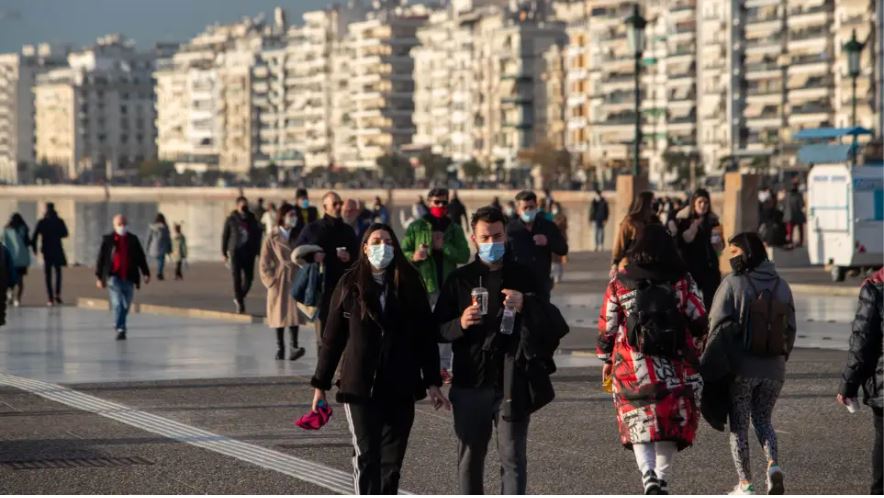The European Centre for Disease Prevention and Control (ECDC) said the data available for the benefits and risks of Covid booster doses for adolescents was insufficient to approve its use. As a priority, those young people aged 12-17 who belong to vulnerable groups will be vaccinated
“Currently, there is limited data available on the benefits and risks of booster dosing in adolescents who have completed their initial COVID-19 vaccination,” the European Center for Disease Control and Prevention (ECDC ) said in a report today.
“At this stage, priority should be given to completing primary vaccination and booster dosing in priority groups before considering booster dosing in adolescents aged 12-17 years without underlying disease,” the ECDC said.
In particular, the ECDC notes that the adolescent vaccine was introduced in the summer of 2021, approximately six months after the introduction of COVID-19 vaccines in EU/EEA countries. All EU/EEA countries now recommend COVID-19 vaccination for adolescents aged 12-17 years, of which only ten recommend booster doses for people under 18 years of age.
To date, at the EU level, booster doses are currently only allowed for people aged 18 and over. The EMA’s Committee for Medicinal Products for Human Use (CHMP) is currently evaluating data on the use of booster doses in adolescents.
According to the ECDC, by 30 January 2022, 70.9% of adolescents aged 15-17 years have been given primary vaccination against COVID-19 in the EU/EEA countries (range: 17.9% – 92.6%) and in 34.8% of young people aged 10-14 years (range 3% – 63.8%).
More than half of adolescents aged 10 to 17 in the EU/EEA have not yet completed primary vaccination.
SARS-CoV-2 symptom reporting rates for 12-17-year-olds have been steadily increasing since July 2021, largely reflecting the increased reporting rate observed in all age groups during the period the Delta and Omicron variants dominated. However, there has recently been a decline in notification rates, with the risk of hospitalisation, ICU admission, and death remaining very low for children aged 12-17.
The studies available for adolescents mainly report the efficacy of the Delta variant vaccine at the initial vaccination cycle and show a very high level of protection against infections, symptomatic disease, and serious illness.
There is limited data available on reducing immunity after vaccination among adolescents. Available data suggest a reduction in vaccine efficacy, five to six months after the completion of the initial vaccination cycle, however, there is currently no evidence of a reduction in immunity to severe disease.
There are currently limited data available on the benefits and risks of a booster dose given to adolescents who have completed their initial COVID-19 vaccination. Preliminary findings suggest an increase in the effectiveness of the SARS-CoV-2 vaccine in adolescents receiving a booster dose, compared with adolescents who have recently completed the initial vaccination. However, data are not yet available on the duration of protection against a booster dose and on the additional efficacy of a booster dose in adolescents with severe disease.






































